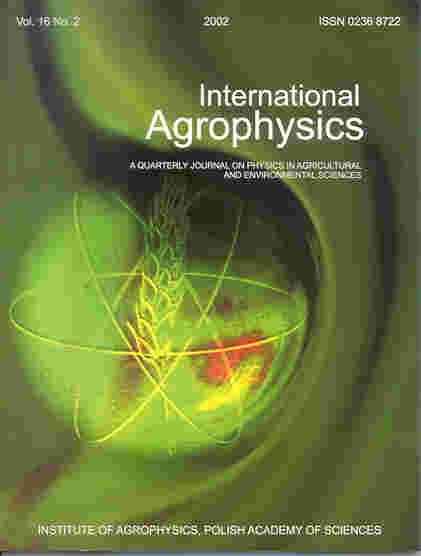|
|
|

|
|
| International Agrophysics |
| publisher: | Institute of Agrophysics
Polish Academy of Sciences
Lublin, Poland |
| ISSN: |
0236-8722 |
vol. 24, nr. 2 (2010)
|
|
|
previous paper back to paper's list next paper
|
|
|
Evaluation of base solutions to determine equilibrium phosphorus concentrations (EPC0) in stream sediments
|
|
| (get PDF ) )
|
|
|
G.M. Lucci1, R.W. McDowell2, L.M. Condron1
|
|
|
1 AgResearch, Invermay Agricultural Centre, Private Bag 50034 Mosgiel, New Zealand |
|
|
2 Faculty of Agriculture and Life Sciences, Lincoln University, P.O. Box 84 Lincoln 7647, Christchurch, New Zealand |
|
|
vol. 24 (2010), nr. 2,
pp. 157-163
|
|
|
abstract
The equilibrium phosphorus (P) concentration (EPC0) is used to identify sediments as sinks or sources of P in impacted waterways. It is determined by incubating the sediment with base solutions spiked with graduated amounts of P. This base solution should be stream water, but its chemistry changes with time and makes comparing sediments sampled at different times of the year impossible. We compared EPC0 values determined using five base solutions, for a range of sediments and compared these with values obtained using stream water. For EPC0 values < 0.5 mg P l-1, 0.0005M CaCl2 was the best predictor of stream EPC0 values (y=1.01x+0.01; R2 = 0.55, P<0.05), followed by tap water (y=1.23x+0.02; R2 = 0.55, P<0.05). Both solutions had Ca concentrations similar to the mean stream water Ca concentration of 21 mg l-1. The commonly used 0.01M CaCl2 solution resulted in EPC0 values much lower than stream water EPC0 values, overestimating the sediment capacity to remove P from overlying water. Therefore it is recommended that stream water Ca concentrations are measured before deciding on an appropriate base solution from which to derive EPC0 values.
|
|
keywords
phosphorus, sediment, erosion, equilibrium phosphorus concentration
|
|
|
|
|
|
|